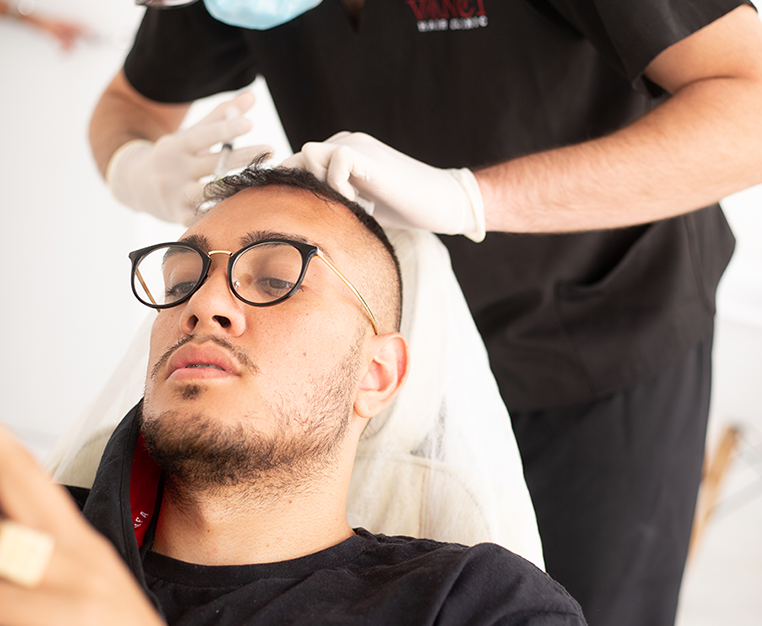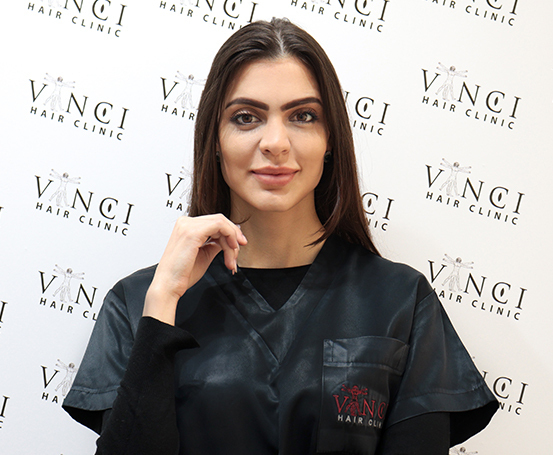Everyone is searching for the magic bullet of hair loss treatments – that one pill or shampoo they can start using today and begin seeing new hair growth tomorrow. The sad truth is that no such potion exists, but that’s not stopping marketers from touting everything from herbal medicines to caffeine powders.
Figures from the National Institute for Health and Care Excellence (NICE), show that 30pc of men under 30 and over 80pc of men over 70 suffer from male pattern baldness.
Hair loss experts all agree that the hair loss industry is a huge beast, and it’s large market means there are desperate men and women will to try almost anything to regain their hair.
According to an industry insider, “The major cause of hair loss in men is not what most people believe. It’s not a poor diet, intense exercise or a lack of sleep. Rather, it’s the genetic condition known as male pattern baldness which does not respond to shampoos or supplements as treatment.” The reasons for hair loss are totally different in women, but still, most hair loss products on the market today just offer false hope.
Finding the few that really produce results is not easy. Which products promote hair growth and which ones are the real deal? This article features some of the tried and tested hair loss treatments you can count on.
Minoxidil
Minoxidil is the only over-the-counter medication for hair loss with FDA approval. You are probably familiar with its brand name, Rogaine.
Rogaine is a topical treatment available in foam or liquid form. It increases blood flow to the hair follicles, promoting size and thickness in shrunken follicles. Minoxidil also extends the growth phase of the hair cycle and encourages regrowth.
Finasteride
Rogaine will work in most cases, but there is a prescription-only treatment that works better for men suffering from male pattern baldness. Male pattern baldness occurs when the levels of a hormone called dihydrotestosterone (DHT) are too high. DHT affects the growth of hair follicles by preventing nutrients from getting to them. Finasteride stops the production of DHT, therefore, protecting the hair follicles and allowing them to thrive.
You will need a doctor to prescribe for the treatment, but first, you will need a diagnosis. Your GP may not have the experience and expertise to diagnose male pattern baldness so it may be better to visit a trichologist.
What about hair-boosting shampoos?
Marketers tout shampoos and conditioners as “miracle” solutions to restoring hair, help with receding hairlines or thicken hair. The truth of the matter couldn’t be further from all the claims out there. These products do have their place though, says leading trichologist Anabel Kingsley, “a thickening shampoo will make hair temporarily thicker for a short time, but they certainly won’t help with hair loss or thinning.” If you would like to keep your hair in excellent condition, then choosing the right hair care products is vital. Beyond that, you should rely on these products to reverse hair loss.
Do hair loss supplements work?
There is a direct link between hair loss and self-confidence. Losing hair makes consumers desperate, and there is a market feeding off that desperation.
There are some supplements which can help maintain healthy hair. However, even the best supplements fall short of restoring hair growth since most hair loss is due to genetics. In women, hormonal issues are at the centre of the hair loss they experience. No supplement is going to address hormonal imbalances.
Good supplements can work as part of a hair restoration regime, together with medication such as Rogaine, Finasteride or a hair transplant. So, do use supplements but be aware of their limitations if hair restoration is the goal.
Effective treatments for hair loss
As much as creams, lotions and topicals promise remarkable results for thinning hair, there’s more to it than meets the eye. As so many people are desperate to restore thinning hair, marketers take advantage of this desperation to sell products which hardly deliver on their promises.
When it comes to effective treatments for hair loss, Rogaine (minoxidil) and Finasteride are proven medicines which tackle the root of the problem. You can improve their effectiveness by using them in combination with hair loss supplements, too.
If you are struggling with hair loss but unsure of the cause, the specialists at Vinci Hair Clinic can help with diagnosis and treatment options. Get in touch today to talk to someone about hair loss and the opportunities to revitalise and regrow your hair.



